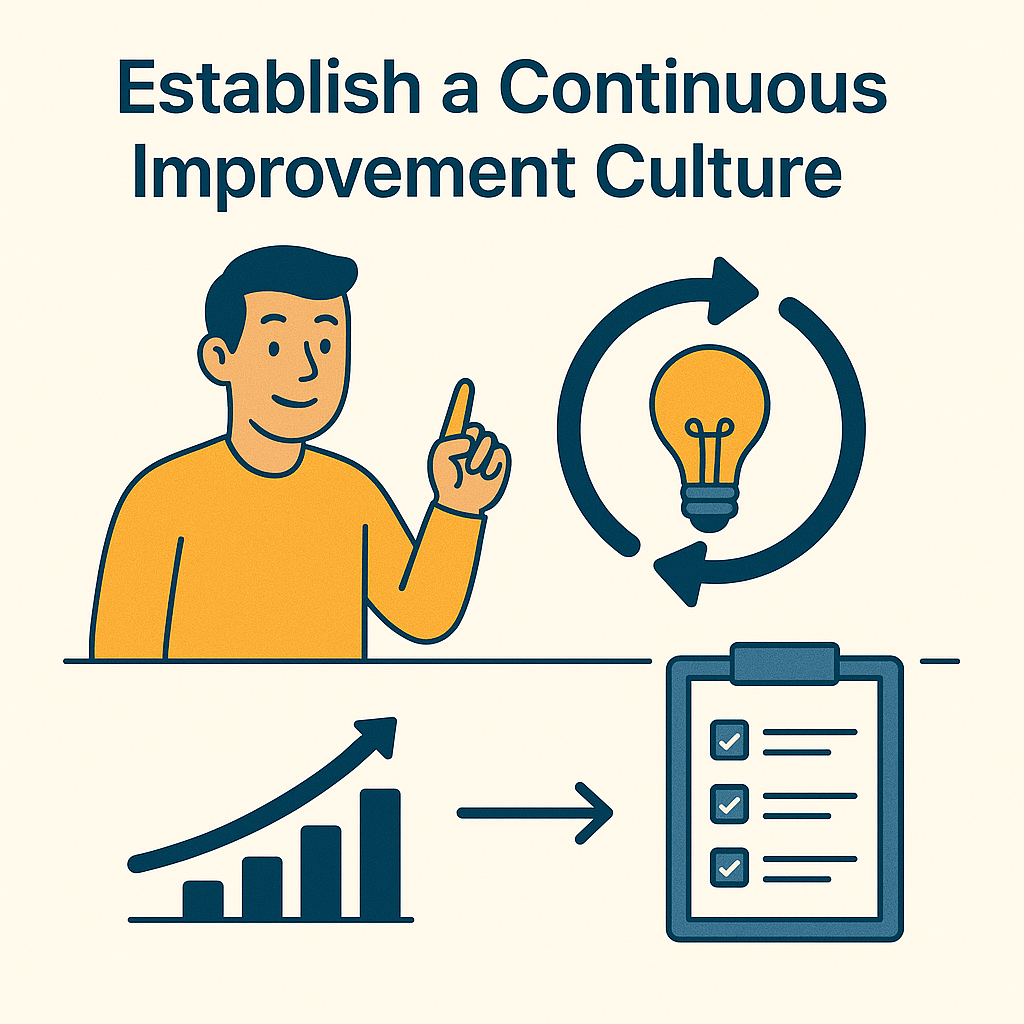Introduction: Why do good intentions rarely last?
You’ve probably experienced this:
- The same issues keep coming back despite your best efforts,
- Action points from meetings vanish after two weeks,
- Small daily irritants turn into recurring blockers…
👉 It’s not a lack of will. It’s often a lack of structure to support improvement.
That’s exactly the focus of this fourth lever: building a culture of ongoing improvement — without pressure, without complexity, but with consistency and practicality.
1. Set up simple, regular feedback loops
A team that improves is a team that listens — to itself and each other.
🎯 What to put in place:
- Short, frequent feedback rituals (end-of-week, post-delivery, sprint reviews),
- Feedback focused on learning and progress — not blame,
- Flexible formats: verbal, written, one-on-one, group.
💡 It’s not the size of the ritual that matters — it’s the consistency.
2. Create space for reflection and micro-adjustments
Improvement doesn’t have to be dramatic. It needs to be visible, useful, and felt.
🎯 What to encourage:
- A weekly check-in (e.g. “What should we keep? What should we improve?”)
- Small, practical changes implemented the next week,
- Shared visibility on what’s been tested or adjusted.
📌 This builds a team rhythm where change becomes normal, not exceptional.
3. Respect different working styles
Not everyone grows or adapts the same way.
🧠 Some people love testing 10 things at once.
🧠 Others need grounding, rhythm, and structure.
A true culture of continuous improvement isn’t about going faster. It’s about moving forward — together, and more intentionally.
💬 Sometimes, respecting different speeds is the first act of real collaboration.
4. Use deadlines as momentum, not pressure
Deadlines can be helpful — when they energize instead of intimidate.
🎯 What we change:
- A deadline is a rhythm tool, not a threat,
- It’s agreed upon collectively, based on real workload,
- It’s adjustable if priorities shift.
📌 Good team pacing doesn’t come from pushing harder. It comes from shared commitment.
Conclusion: Improvement doesn’t happen — it’s built and nurtured
Teams don’t get better because someone tells them to “do better.” They improve because they have the habits, the space, and the motivation to do so.
✅ Regular feedback,
✅ Visible micro-adjustments,
✅ Respect for working rhythms,
✅ Motivating deadlines.
What about you?
What tiny rituals help your team grow every day? Or on the flip side — which ones never stick?
I’d love to hear your experience — drop a comment or reach out privately.


Leave a Reply